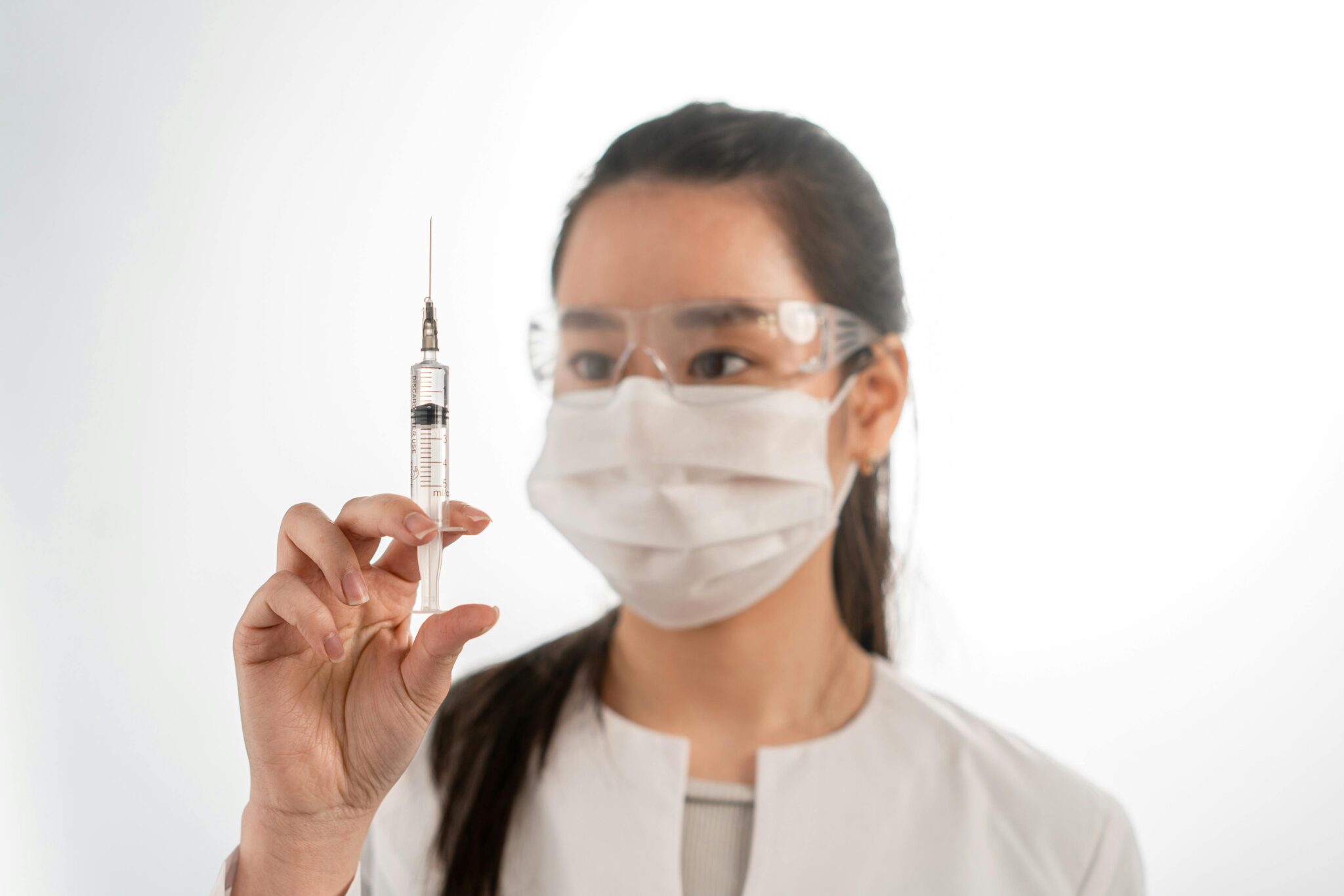- Your cart is empty
- Continue Shopping
From Bench to Bed: A Guide to Scale Up For Clinical Trial Success in Singapore

From Bench to Bed: A Guide to Scale Up For Clinical Trial Success in Singapore
- Atlantis Bioscience
- Blog
- Reading Time: 8 minutes
Table of Contents
- 5 Common Challenges in Scaling Up Research
- 1. Utilizing Biobanks & Data Repositories for a Robust Pre-clinical Scientific Foundation
- 2. Nurture Startups Scientists Through Mentorship & Networking with International Industry Players
- 3. Fostering Academic-Industry Partnerships for Accelerated Innovation
- 4. Streamlining R&D and Clinical Services for Success
- 5. Navigating the Regulatory Landscape for Successful Commercialization
- Singapore: A Prime Location for Clinical Trial Success
Transforming groundbreaking research into life-changing therapies requires a seamless transition from the lab to the clinic. Scaling up research processes to meet the stringent demands of clinical trials is pivotal in advancing medical science and improving healthcare outcomes.
Singapore’s strategic focus on bridging the gap between research and practical application positions it as a global clinical research and development leader. This article delves into the strategies and best practices for effectively transitioning research into the clinical setting, providing insights to navigate the complex landscape of translational research.
5 Common Challenges in Scaling Up Research
Transforming groundbreaking research into life-changing therapies is a complex journey fraught with challenges. While Singapore offers a supportive ecosystem, navigating the path from bench to bedside requires overcoming significant hurdles. Let’s delve into the key challenges researchers often encounter when scaling up their work.
- Funding Constraints: Despite government support, securing sustained funding can be challenging. Researchers often face intense competition for limited grants, which may not cover all aspects of their projects, especially those requiring long-term investment.
- Collaboration and Integration: Effective collaboration between different research institutions, universities, and industries is crucial. However, coordinating these efforts can be challenging due to varying goals, priorities, and operational frameworks.
- Translation and Commercialization: Moving from research to market involves numerous steps, including proof of concept, prototyping, and clinical validation. Researchers often struggle with the translation of their discoveries into viable commercial products or therapies.
- Regulatory Hurdles: Navigating the regulatory landscape can be complex and time-consuming. Ensuring compliance with local and international standards requires substantial administrative effort, which can delay the progression of research from the bench to the bedside.
- Talent Retention: Attracting and retaining top talent is critical. Researchers often face stiff competition from the private sector, which can offer more lucrative opportunities. Ensuring a steady pipeline of skilled researchers and support staff is essential for scaling up research.
While recognizing these challenges is essential, it’s equally important to explore strategies for overcoming them. In the following section, we will delve into practical solutions and best practices to navigate the complexities of scaling up research and successfully transition from bench to bedside.
1. Utilizing Biobanks & Data Repositories for a Robust Pre-clinical Scientific Foundation
A robust foundation is crucial for successful clinical trial development. Biobanks and data repositories provide invaluable resources that accelerate research and enhance preclinical studies. Singapore’s commitment to fostering a thriving research ecosystem is evident in its world-class biobanking infrastructure.
These facilities provide high-quality, ethically sourced specimens that support biomedical research, validate findings, and aid in designing robust clinical trials, thereby creating a strong foundation for further clinical development.
Key Biobanks and Data Repositories in Singapore:
- Singapore Immunology Network (SIgN) Biobank: Supplies immune cells and related data essential for studying infectious diseases and immune disorders.
- Cancer Science Institute of Singapore (CSI Singapore): Provides samples for developing novel cancer therapies, enabling studies on the genetic and molecular basis of various cancers, and leading to the identification of new drug targets and treatment strategies.
- A*STAR’s Genome Institute of Singapore (GIS): Offers genetic data for personalized medicine, helping to identify disease-associated genetic variations and tailor treatments.
- SingHealth Tissue Repository (STR): Supplies human tissue samples for studying disease heterogeneity and developing personalized cancer treatments
- Advanced Molecular Pathology Laboratory (AMPL): A one-stop service under STR for researchers and industry partners providing technical support for tissue-based research
By leveraging these resources, researchers can access high-quality biological materials, expedite research timelines, and increase the translational impact of their work.
2. Nurture Startups Scientists Through Mentorship & Networking with International Industry Players
Singapore’s vibrant entrepreneurial ecosystem offers invaluable support to startups navigating the complex landscape of research and development. Enterprise Singapore offers a comprehensive suite of programs and initiatives to nurture startups through mentorship, resources, and market access.
- Startup SG Accelerator – This incubator acceleration program provides mentorship, networking opportunities, and resources to help startups accelerate their growth and market entry.
- Global Innovation Alliance (GIA): This program facilitates cross-border collaborations and market expansion. Startups can access a network of Singapore and international partners, with a focus on technology and innovation. Under GIA, Enterprise SG has partnered with various international industry players to run acceleration programmes.
- SGInnovate: This government-owned entity focuses on deep tech startups, offering mentorship, and access to a global network of experts, investors, and industry leaders in biotech, agrifood, sustainability, or advanced manufacturing.
By leveraging these initiatives, startups can gain access to valuable mentorship, industry insights, and strategic partnerships, propelling their research towards commercialization.
3. Fostering Academic-Industry Partnerships for Accelerated Innovation
To bridge the gap between research and commercialization, fostering robust collaborations between academia and industry is paramount. Singapore’s strategic landscape provides fertile ground for such partnerships. The Agency for Science, Technology & Research (ASTAR) is a statutory board under the Ministry of Trade and Industry of Singapore and serves as the country’s leading R&D agency, facilitating public-private collaborations. Examples of platforms hosted by ASTAR include:
Key Platforms for Collaborative Success:
- Health & MedTech Horizontal Technology Coordinating Office (HMT HTCO)
• A centralized hub that coordinates the expertise and capabilities in medical and health technology across A*STAR.
• Focus of research areas:- Data analytics, AI, materials science, design and manufacturing, diagnostic development, and bioinformatics.
- Biomedical Sciences Industry Partnership Office (BMSIPO)
• A platform dedicated to forging strong partnerships between academia and industry for innovative healthcare solutions, and clinical partnerships across Singapore’s ecosystem.
• Bridges the gap between academia and commercialization, enabling more efficient and large-scale clinical trials.
- Experimental Drug Development Centre (EDDC)
- Partners with local biotechs and international pharmaceutical companies to co-develop novel therapeutics.
- Has fully integrated capabilities for drug discovery and development, enhancing the efficiency and scale of clinical trials by combining the strengths of both public and private sectors.
4. Streamlining R&D and Clinical Services for Success
To bridge the gap between research and clinical application, a seamless integration of research and clinical services is paramount. Singapore leverages its comprehensive healthcare services and research expertise to create a synergistic environment that supports the entire research continuum.
Key Players in Singapore Healthcare Ecosystem:
- National University Health System (NUHS)
- An integrated academic health system in Singapore, serving as both an Academic and Regional Health System.
- Leveraging resources from the National University of Singapore (NUS), NUHS collaborates with NUS faculties to develop innovative healthcare solutions.
- As a Regional Health System, NUHS works with community hospitals, general practitioners, family medicine clinics, nursing homes, and other partners to provide integrated care to the community.
- SingHealth Duke-NUS Academic Medical Centre
- Leverages the strengths of SingHealth and Duke-NUS Medical School to transform healthcare and provide affordable, quality care. It includes acute hospitals, speciality centres, community hospitals, and polyclinics, offering over 40 clinical specialities.
- Integrates clinical care, education, and research to deliver high-quality patient care, train healthcare professionals, and advance healthcare innovations.
- Conducts research to improve disease prevention, diagnosis, and treatment, and fosters continuous learning and innovation to enhance patient care and medical education.
- Consortium for Clinical Research and Innovation, Singapore (CRIS), a subsidiary of MOH Holdings (MOHH), develops strategies for national-level clinical research and translation programmes.
- Singapore Clinical Research Institute (SCRI) – One of the key national R&D initiatives by CRIS
- A national academic clinical research organization was established to enhance clinical research standards in Singapore by developing core capabilities, infrastructure, and scientific leadership.
- Provides clinical operation services, including project management and site monitoring, ensuring successful execution, data integrity, subject safety, and overall efficiency.
- Offers training programs and workshops to equip researchers with knowledge and skills in good clinical practice (GCP), trial design, and data management.
Key Benefits of Collaborating with These Entities:
- Comprehensive Expertise: Access to experienced professionals across various clinical research disciplines, and extensive networking opportunities with local and international partners, including hospitals, research institutions, and industry players.
- Regulatory Compliance: Expertise in local and international regulatory requirements, ensuring compliance and credibility of research outcomes.
- Infrastructure and Resources: Access state-of-the-art facilities and equipment for efficient research conduct.
- Networking Opportunities: Build strong collaborations with key stakeholders in the healthcare ecosystem.
By strategically engaging with these organizations, researchers can accelerate their path to clinical success and contribute to improving patient outcomes.
5. Navigating the Regulatory Landscape for Successful Commercialization
Ensuring regulatory alignment is crucial for the successful translation of research into commercial products and therapies. Another key national R&D initiative by CRIS is the Advanced Cell Therapy and Research Institute, Singapore (ACTRIS).
ACTRIS Facilities and Services
ACTRIS plays a pivotal role in supporting the growth of Singapore’s cell and gene therapy industry. Its state-of-the-art cGMP and GTP facilities provide a robust infrastructure for companies to develop and manufacture innovative therapies. By offering early engagement and support, ACTRIS accelerates time-to-market and de-risks the commercialization process.
- Comprises of a current Good Manufacturing Practice (cGMP) Facility and a Good Tissue Practice (GTP) Facility
- Set up for the development and manufacturing of cell and gene therapies (CGT) products to support clinical trials in Singapore and the ASEAN region, thus enhancing biotech companies’ capacity to scale and innovate.
- Seeks national certifications from the HSA and MOH in Singapore and aims to meet international CTGT manufacturing standards set by the FDA, PIC/S, EMA, and ISCT.
- Early engagement with ACTRIS ensures GMP compliance, facilitating regulatory approvals and successful commercialization.
Singapore’s Health Sciences Authority (HSA) has established a streamlined regulatory pathway to facilitate clinical trials and product approval. HSA offers supportive frameworks aligned with international standards, streamlining processes to help scale up research by reducing the time and complexity associated with obtaining approvals for clinical trials. These regulatory schemes include:
- Clinical Trial Authorisation (CTA)
- Researchers or sponsors must submit detailed information about the trial, including the study protocol, investigator qualifications, and safety data from preclinical or previous clinical studies. The HSA reviews these submissions to assess the potential risks and benefits of the proposed trial.
- CTA aims to protect trial participants by ensuring that clinical trials are conducted under ethical standards and scientific rigour.
- Clinical Trial Material Notification (CTMN)
- Regulatory requirements by the HSA on the import, supply, or use of such investigational drugs, in Singapore.
- The notification includes details about the investigational product, such as its composition, manufacturing process, and quality control measures. This ensures that the CTMs comply with Good Manufacturing Practices (GMP) and other relevant standards.
Singapore: A Prime Location for Clinical Trial Success
Singapore’s strategic geographic location, coupled with a robust healthcare ecosystem and supportive regulatory environment, positions the nation as a premier destination for clinical trials. Let’s explore the key factors that make Singapore a compelling choice for researchers and pharmaceutical companies.
- Strategic Geographical Location
- Located in the heart of Southeast Asia, Singapore provides easy access to a vast patient population in the region. Its excellent connectivity via air and sea makes it a logistical hub for clinical trial operations, ensuring efficient and streamlined processes for global research studies.
- Diverse Population
- Singapore’s diverse racial and ethnic population ensures that clinical trial cohorts are well-represented, enhancing the applicability of research findings. The country’s multicultural society is a valuable asset for clinical trials, with its varied ethnicities and genetic backgrounds enabling comprehensive research that has wide-reaching implications. Furthermore, the multilingual capabilities of the population promote effective communication with trial participants.
- Robust Healthcare System & Multidisciplinary Teams
- Singapore’s advanced healthcare infrastructure, complemented by specialized research centers such as the National Cancer Centre, the National Heart Centre, and the Duke-NUS Medical School, creates an excellent environment for clinical trials. The country boasts a pool of experienced clinicians and researchers trained at leading medical institutions worldwide. Their expertise ensures the rigorous design, implementation, and analysis of clinical trials. Collaborative teams of doctors, nurses, pharmacologists, and data analysts work together seamlessly in Singapore. This multidisciplinary approach enhances the efficiency and effectiveness of clinical trials.
- Government Initiatives
- Government agencies like the Economic Development Board (EDB), Singapore Enterprise, and A*STAR offer financial incentives and infrastructure support for clinical trials.
- Strong Academic and Industry Collaboration
- Leading academic institutions and global pharmaceutical companies foster robust collaboration, integrating clinical trials into the broader R&D landscape.
- Access to Cutting-Edge Technology
- Singapore’s focus on innovation allows clinical trials to leverage advanced technologies like genomics, bioinformatics, and personalized medicine.
- Ethical and Regulatory Standards
- High ethical and quality standards ensure trials adhere to international guidelines, enhancing Singapore’s credibility. Singapore Health Sciences Authority (HSA) provides clear regulatory pathways, facilitating quicker approvals and trial initiation, ensuring compliance with GCP guidelines.
By understanding the regulatory landscape and engaging with relevant authorities early in the development process, companies can increase their chances of success in the competitive global market.
In the dynamic field of clinical research, scaling up processes is essential for advancing medical innovation and improving patient care. Singapore excels in this area with a holistic approach that includes robust infrastructure, strategic partnerships, and rigorous regulatory frameworks.
Looking to find more information about moving from bench to bed?
Read our article on “Things to Know & Consider Before Scaling Up Cell Cultures: Navigating The Challenges“
CONTACT

QUESTIONS IN YOUR MIND?
Connect With Our Technical Specialist.

KNOW WHAT YOU WANT?
Request For A Quotation.
OTHER BLOGS YOU MIGHT LIKE
HOW CAN WE HELP YOU? Our specialists are to help you find the best product for your application. We will be happy to help you find the right product for the job.

TALK TO A SPECIALIST
Contact our Customer Care, Sales & Scientific Assistance

EMAIL US
Consult and asked questions about our products & services

DOCUMENTATION
Documentation of Technical & Safety Data Sheet, Guides and more...
